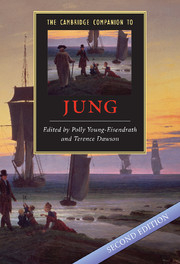Book contents
- Frontmatter
- New developments in the post-Jungian field
- Part I Jung’s Ideas and their Context
- Part II Analytical Psychology in Practice
- 5 The classical Jungian school
- 6 The archetypal school
- 7 The developmental school
- 8 Transference and countertransference
- 9 Me and my anima: through the dark glass of the Jungian/Freudian interface
- 10 The case of Joan: classical, archetypal, and developmental approaches
- Part III Analytical Psychology in Society
- Index
7 - The developmental school
from Part II - Analytical Psychology in Practice
Published online by Cambridge University Press: 28 June 2008
- Frontmatter
- New developments in the post-Jungian field
- Part I Jung’s Ideas and their Context
- Part II Analytical Psychology in Practice
- 5 The classical Jungian school
- 6 The archetypal school
- 7 The developmental school
- 8 Transference and countertransference
- 9 Me and my anima: through the dark glass of the Jungian/Freudian interface
- 10 The case of Joan: classical, archetypal, and developmental approaches
- Part III Analytical Psychology in Society
- Index
Summary
Analytical psychology as elaborated by Jung and his immediate followers did not focus on the depth psychological aspects of early infant and childhood development. Freud and his followers made the imaginative leap required to link the two pivotal areas of analytic investigation - the early stages of development and how such states of mind may manifest in adult patients, on the one hand, and the nature and varieties of transference and countertransference in the analytic relationship, on the other - and to include them in psychoanalytic theory. Analytical psychology was slow to follow suit, despite Jung's early and continued insistence on the importance of the relationship between analyst and patient, and his study of the Rosarium (CW 16) as a way of understanding the vicissitudes of the analytic couple. For Jung and the group that had formed around him, the rich and attractive field of creative and symbolic activity and collective and cultural pursuits appeared to be more engaging. Nevertheless, in certain respects it could be said that creative psychic activity, as well as its destructive and distressing aspects, could be located within two pivotal areas of investigation, and could be seen rightfully to belong to the examination of the relationship between primary process (that is, the earlier, more primitive mental processes with infantile foundations) and the later secondary mental processes.
- Type
- Chapter
- Information
- The Cambridge Companion to Jung , pp. 125 - 146Publisher: Cambridge University PressPrint publication year: 2008



